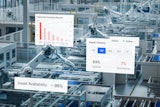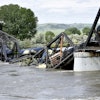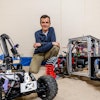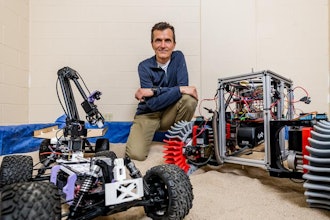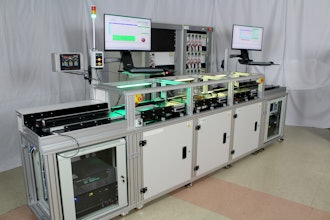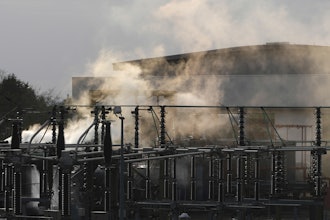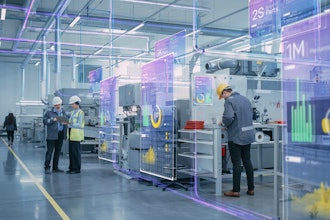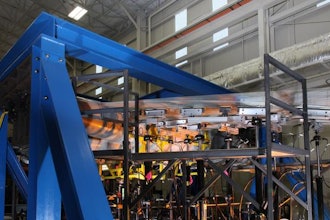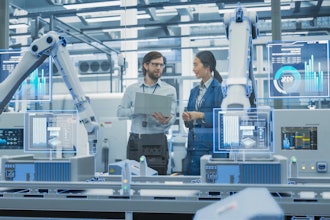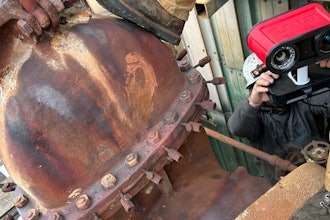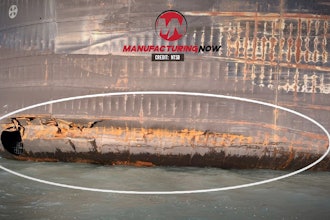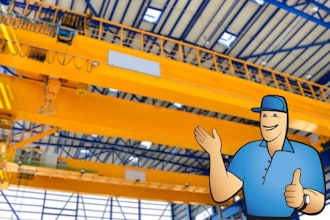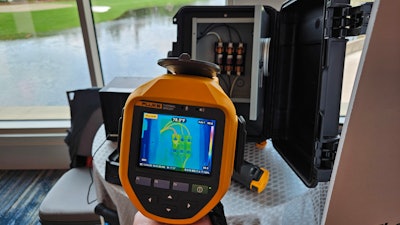
Editor's Note: Download the audio version below.
ORLANDO — The manufacturing industry has received a boost from recent legislation such as the CHIPS and Science Act, but industrial facilities still experience hundreds of hours of downtime annually. As the industrial landscape evolves and expands, the need for skilled maintenance workers becomes more paramount.
By now, virtually everyone in the industry has heard about the Deloitte and Manufacturing Institute study that projects 2.1 million unfilled jobs by the end of the decade. According to census.gov, by then, all boomers will be at least 65 years old.
The increased investment in manufacturing is encouraging, but for every increase in a facility’s assets, the lack of knowledgeable bodies available to maintain them becomes more glaring. Someone, or something, will need to fill this gap.
Most Read on IEN:
- Quaker to Shutter Illinois Plant, Lay Off More than 500
- Engine Cover on Southwest Plane Rips Off
- NAM: New Walkaround Rule Exceeds OSHA's Authority
- Virgin Galactic Countersues Boeing, Alleging 'Shoddy Work'
Fluke Reliability, a division of electronic test tool manufacturer Fluke Corporation, provides a range of technologies such as eMaint and Prüftechnik, which are helping manufacturers do more with less resources. The addition of Azima DLI, an AI-powered vibration analytics and remote condition monitoring solution, looks to be the next big thing in machine maintenance. Fluke Reliability acquired Azima in August 2023 and offers the solution through a team of analysts that remotely look at data and provide insight to customers.
“We don't even acknowledge how many machines are around us,” Fluke Corporation President Jason Waxman said at Fluke Reliability’s Xcelerate 2024 conference in Orlando. “We work on them, they drive us places, keep the lights on and it's just growing at an insatiable rate. [Workers are] not going to physically be able to get around to everything, so you're going to have to use sensors, you're going to have to use other types of tools to be able to maintain these assets.”
 Fluke's acoustic imager is demonstrated at Xcelerate 2024 in Orlando.Nolan Beilstein
Fluke's acoustic imager is demonstrated at Xcelerate 2024 in Orlando.Nolan Beilstein
Michael DeMaria, Fluke Reliability’s director of product management for the Azima DLI product line, explained that about 40 years ago, one worker was responsible for maintaining maybe two critical machines in a plant. That worker’s experience and knowledge allowed them to identify an issue with a machine and correct it quickly. Nowadays, plants rely on lean crews responsible for hundreds of assets.
The old method is impossible to translate to modern times. So the question becomes, as DeMaria phrased it, “What is the capability of that one guy who knew everything, and how could it be measured in a way that it's relatable to the new workforce?”
“You now have a new generation that is going to have that knowledge gap that they have to try to overcome, or there's going to be technology that's put in place that enables him to do what he needs to do in the same safe and effective way,” DeMaria said. “That's where the gap comes in.”
According to DeMaria, AI can serve as the next iteration in machine maintenance, addressing the issues created by a skills gap. AI can also address the push to implement more proactive maintenance strategies.
“With Azima, we've collected over 67 trillion data points over 30 years,” Fluke Reliability President Ankush Malhotra said. “So all that data over the years has given us the ability, or given Azima the ability, to build an expert system. Think of this as algorithms that sit on all this data being able to proactively tell when a machine could potentially go wrong, what could be the root cause of it and drive corrective action.”
 Fluke Reliability President Ankush Malhotra speaks at Xcelerate 2024 in Orlando.Nolan Beilstein
Fluke Reliability President Ankush Malhotra speaks at Xcelerate 2024 in Orlando.Nolan Beilstein
Malhotra, who led the acquisition of Azima, recalled a visit to a steel plant a few years ago. He discovered that the maintenance team of about 14 workers had an average tenure of approximately 25 years.
Those workers will retire soon, and a less experienced workforce will take their place. Only now, they’re stepping into a much more vast environment than their predecessors.
“I think a lot of the younger generation that's coming in, their expectation is that [companies] have a lot more automation,” Malhotra said. “So I think one of the things for us is how do we use AI to help educate and train them? I think [Azima] allows our newer workforce to learn but also make sure it bridges that ‘I just don't know. I've never experienced this situation before.’ That expertise through an analyst and the AI tech really helps mitigate that.”
The customers do not need to be AI experts, but Malhotra said they should have a clear strategy. This includes knowing what problem they are trying to solve, the plan or process to solve it and which parts of that plan can be augmented, supplemented or replaced by leveraging AI.
 Fluke Reliability hosts Xcelerate 2024 in Orlando.Nolan Beilstein
Fluke Reliability hosts Xcelerate 2024 in Orlando.Nolan Beilstein
Malhotra added that manufacturers can start small with Azima, emphasizing its scalability. He explained that many of Fluke Reliability’s customers began by testing the solution’s competence on 10 to 20 critical machines. However, despite Azima’s capabilities, human expertise is still required.
“The AI brings a lot of the expertise, automates a lot of the faults and the alarms, but still a human and an expert is required to provide that service,” Malhotra said. “We look at generative AI as a copilot, as a way for how we can enable our products in a way so that it can help the tech to do the job more efficiently.”
AI in industrial maintenance is still new, but DeMaria foresees it being much more involved 10 to 15 years down the road.
“The materials that you're going to get are going to be more catered to your skillset,” DeMaria predicted. “It's going to be adapted into a way that makes sense. [For example], I need to balance some machine. AI will present that in a way that's going to make sense to that particular user. So taking things that are hard and technical and making them digestible. Whether [it’s your] first day with the company or you've been there for 40 years.”
For Similar Content: Subscribe to Daily Newsletters
